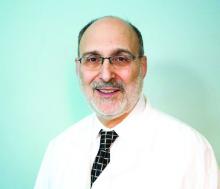“What did the patient say about the golf ball?” I asked my student.
The student looked blank. “Golf ball?” he asked.
“The patient said a golf ball hit him.”
“He did?”
“I showed him a precancerous red spot on his forehead, and said I could freeze it off.”
“Yes,” said the student. “Now I remember.”
“Good. Now tell me why he said it.”
The student looked lost. “Because he really was hit by a golf ball?”
“Maybe he was,” I said. “But in his 60 years, he’s been hit by a lot of things. How can he be sure the golf ball hit just that spot? And anyhow, why tell me about it? He must have thought it was important for me to know. We discussed this the other day,” I reminded him.
“Because there was trauma?”
“That’s it,” I said. “One way patients understand why things happen to them is by saying that what got sick was hit by something. They assume trauma weakens and damages the body, and disposes it to being unhealthy.
“After all,” I went on, “I had told him his spot was caused by sun exposure. But he’s had sun exposure all over his face, so why would he get a sun spot only right there? His answer: Sun damages all skin, but the part the golf ball whacked is especially susceptible.
“Is he right? I have no idea, but it’s important – to him – to think so. Not so much for this spot – we’re going to treat it anyway – but because of what he said 2 minutes later about his left shin. Remember?”
The student did not.
“He had a raised brown spot on his leg,” I reminded him. “It was just a seborrheic keratosis, not even precancerous. But he said he was always picking it.”
“Yes, he did say that,” said the student.
“So again: Why did he think I needed to know?”
“Because picking is a form of trauma, which might cause the spot to turn into something?”
“Yes, indeed,” I said. “You should train yourself to listen to these offhand remarks that seem irrelevant to you. They are relevant to the patient, or he wouldn’t say them.
“How many patients have we seen together who asked me to take something off ‘because I keep picking at it’? Or because ‘it catches on my necklace,’ or ‘it rubs on my bra’? It’s not just annoyance. The hanging bumps often are not even close to what is supposed to be irritating them, or else they’re too small to get in the way.”Sure enough, a little later the student and I met another patient coming for a skin check. A computer scientist from a local university, he displayed a big collection of cherry angiomas on his torso, front, and back.
Looking at his belly, he said, “I know where I got those.”
“Which ones?” I asked.
He pointed to a dense collection of red spots near his navel. “A soccer ball hit me there when I was a teenager in Colombia,” he said.
Later, the student and I discussed this man’s recollection. “What makes his observation striking,” I suggested, “is not just as another example of a patient blaming body changes on trauma. It’s that he did it in a way that even a smidgen of critical thinking – the kind he applies to his professional work all the time – would show that his hypothesis makes no sense. After all, he has dozens of red spots nowhere near where the soccer ball supposedly hit him.
“You would think a computer scientist would notice this, but when it comes to looking at our own health, even sophisticated scientific training may not help. Instead, the thinking is: “I’ve got these red spots. Something caused them. A soccer ball hit me down there. That must be it.”
Sometimes hearing what patients say doesn’t matter; we’re not going to remove the cherry angiomas. But sometimes it does, by telling us the real reason they want something removed, which may include some guilt about their own picking, guilt they can do without.
But you would have to listen for that nuance, and listening is hard. Mostly, in medicine and in life, we hear only what we expect to hear.
Dr. Rockoff practices dermatology in Brookline, Mass., and is a longtime contributor to Dermatology News. He serves on the clinical faculty at Tufts University, Boston, and has taught senior medical students and other trainees for 30 years. His second book, “Act Like a Doctor, Think Like a Patient,” is available at amazon.com and barnesandnoble.com. Write to him at dermnews@frontlinemedcom.com


